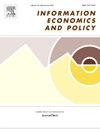Much like the music and movies industries before, the comic book industry has entered the digital markets and faces the unfair competition of unauthorized sources. I conduct a survey of comic book readers to analyse the relationship between the pirate channels and the sales of comic books from the top American publishers. My data allows me to construct a time panel of comics readers and calculate the substitution rate between the paid and unpaid channels of comics acquisition. I find that piracy is negatively related to comics sales though mainly those of limited series. Moreover, for digital comics the relationship is observable only for a smaller group of readers with high valuations of digital formats. I also show that the digital comics – both paid and unpaid – are typically considered as inferior by the readers. With the price of digitally released new comics set at the same level as their print versions, this suggests that readers who do not want to pay the full price for print copies are more likely to use pirate sources than to switch to legal digital channels. Still, both paid and unpaid readership is associated with higher interest in other types of comics-based media such as movies or video games. This suggests that comics piracy might carry some indirect positive effects. As this aspect could improve the negotiating position of comic book authors it should be studied further.


